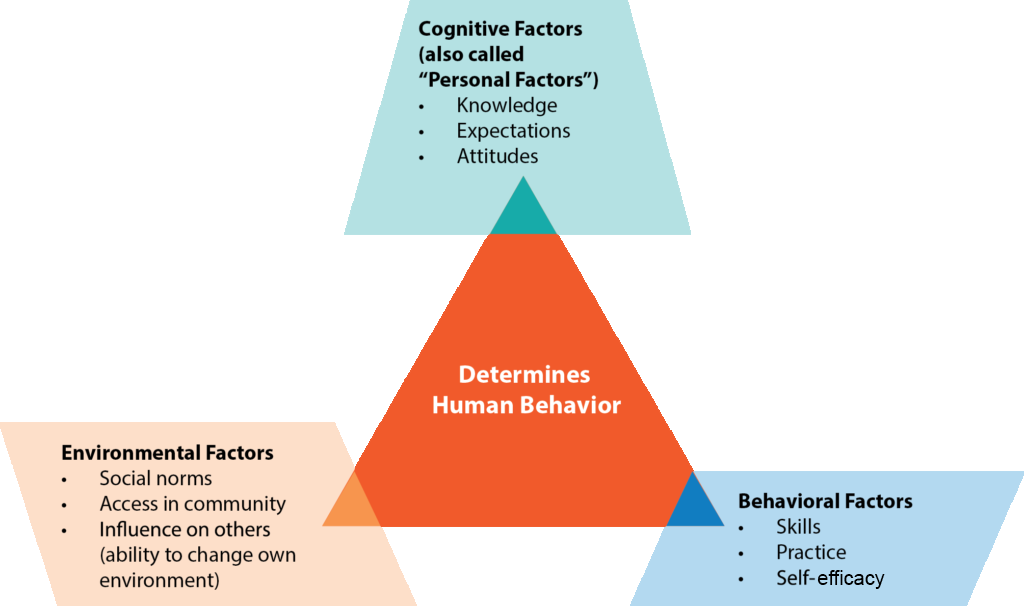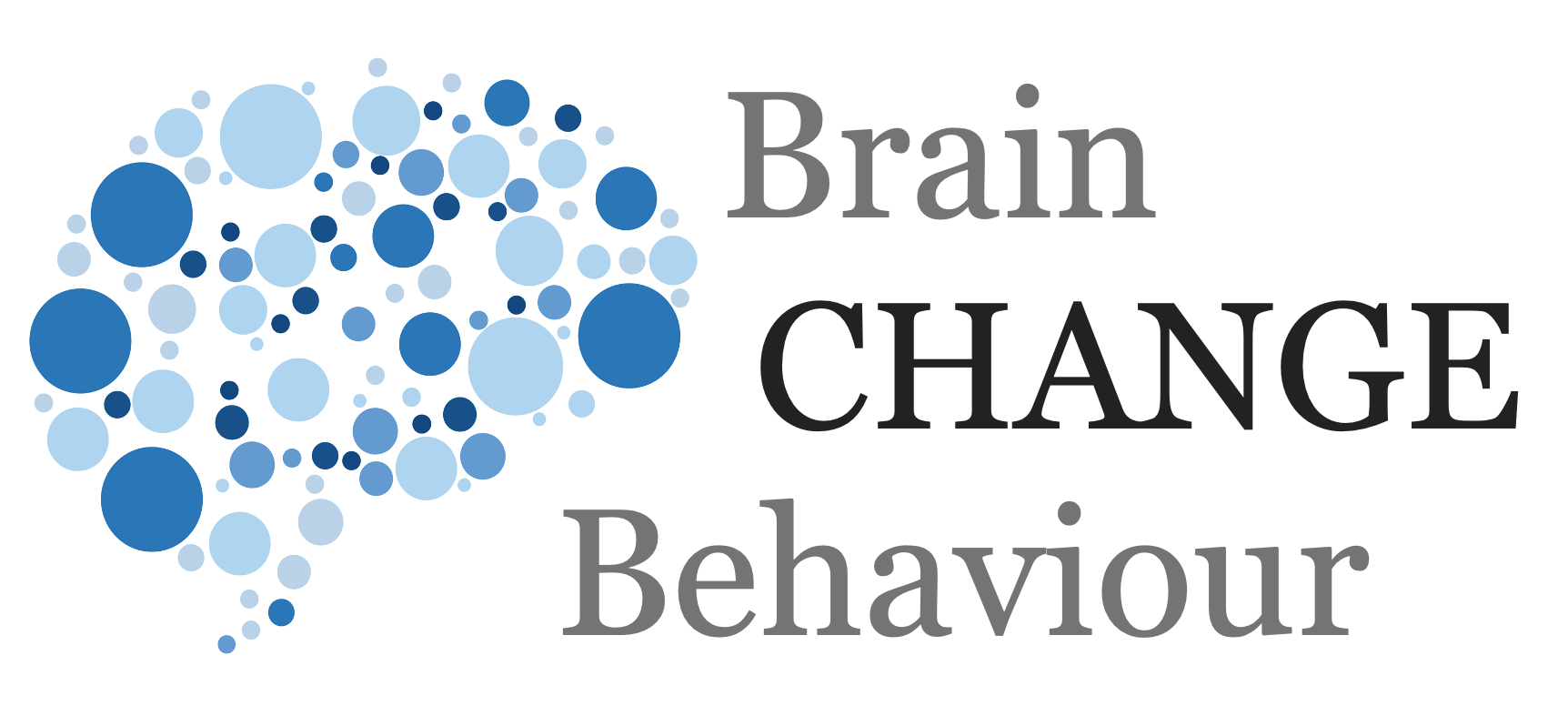Article
Change Models

Social Cognitive Theory by famed psychologist Bandura is grounded, as the name suggests, in social contexts saying that behaviour is driven by the triad of behaviour, personal, and environmental factors.
This is often known as reciprocal determinism. Environmental factors represent situational influences and environment in which behavior is preformed while personal factors include instincts, drives, traits, and other individual motivational forces.
Cognitive / Personal Factors
- Knowledge
- Expectations
- Attitudes
Behavioural Factors
- Skills
- Practice
- Self-Efficacy
Environmental Factors
- Social Norms
- Access in the Community
- Influence on others
Social Cognitive Theory evolved from Bandura’s Social Learning Theory and he also speaks of reicnforcement, something that will enable the behaviour to continue or become stronger and also the potential need for incentives (which help to boost expectations). In learning contexts he also noted the case of obervational learning whereby we learn just from observation.
Summary
This is another three-factor model which includes similar elements to other models and shows their interactions. Interventions would therefore need to focus on which if these need to change and how this coudl happen.
Simple Takeaways
-
- Behaviour is driven by cognitive/personal, environmental, and behavioural factors
- This helps you describe behaviour and guide interventions
© leading brains 2022
Reference
More Articles
The Equilibrium Effect
Things in life tend towards certain balances. This is particularly true in large systems and this is why change can happen in small contexts and be very effective or successful but in large systems different rules apply.
The supply side of scaling
There are a number of problems with the supply side – being able to supply the resources and competencies to drive change.
Unintended consequences and negative spillovers
We all know that any change – well, obviously, changes something. But this also means there will be various knock-on effects
Representativeness of the Situation
“You had to be there” is an expression that says you had to be in a particular situation, in that particular vibe, to fully understand a situation.
Representativeness of the Population
When we get a good idea, we may know it is a good thing. And because we know it is a good thing we may then falsely assume – without really thinking this through – that everybody thinks this is a good thing.
False Positives – The inference problem
A false positive has become better-known to the general public during the pandemic and with COVID-19 testing particularly with home based quick tests.






